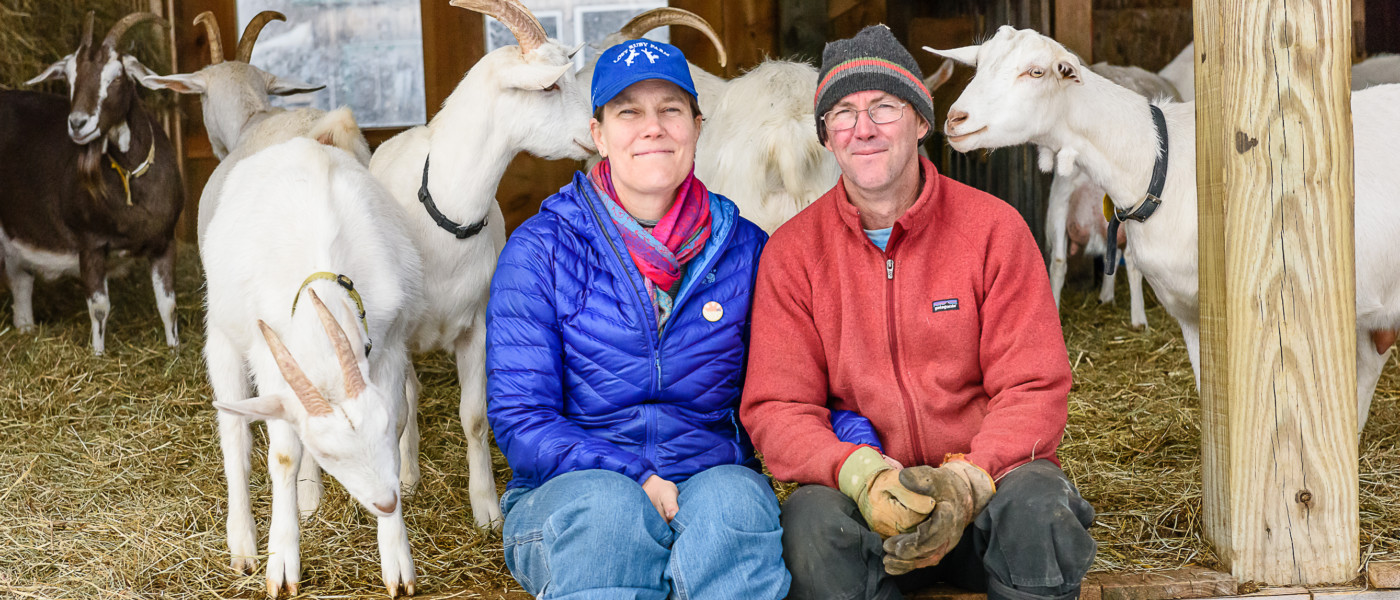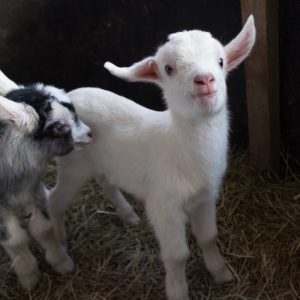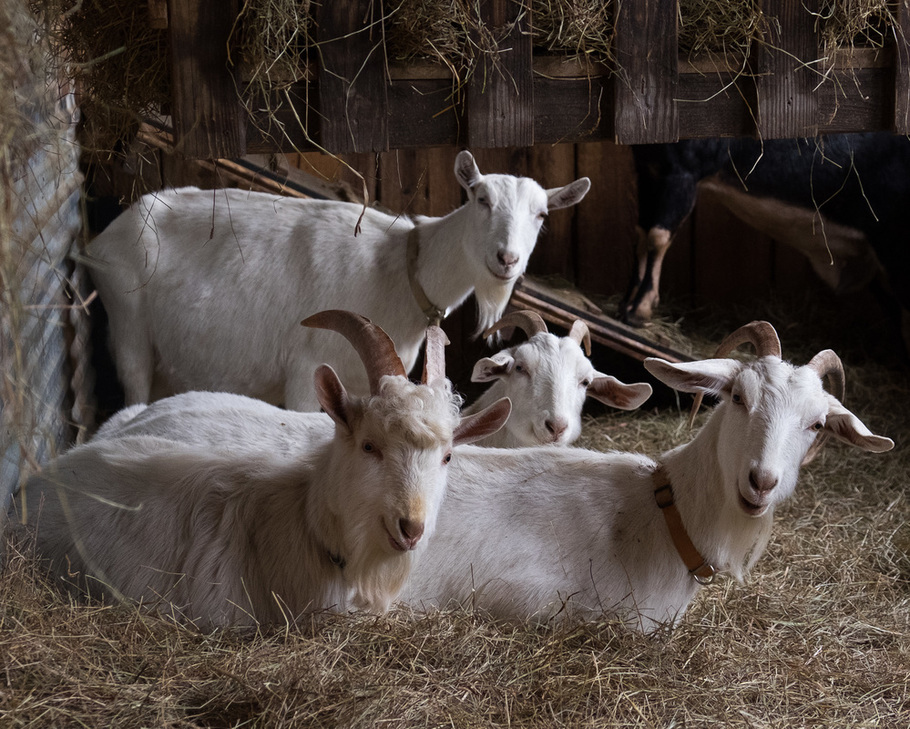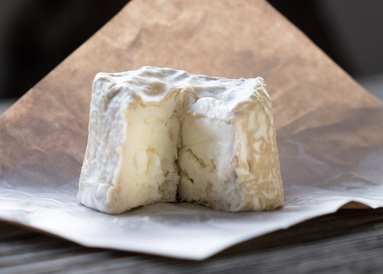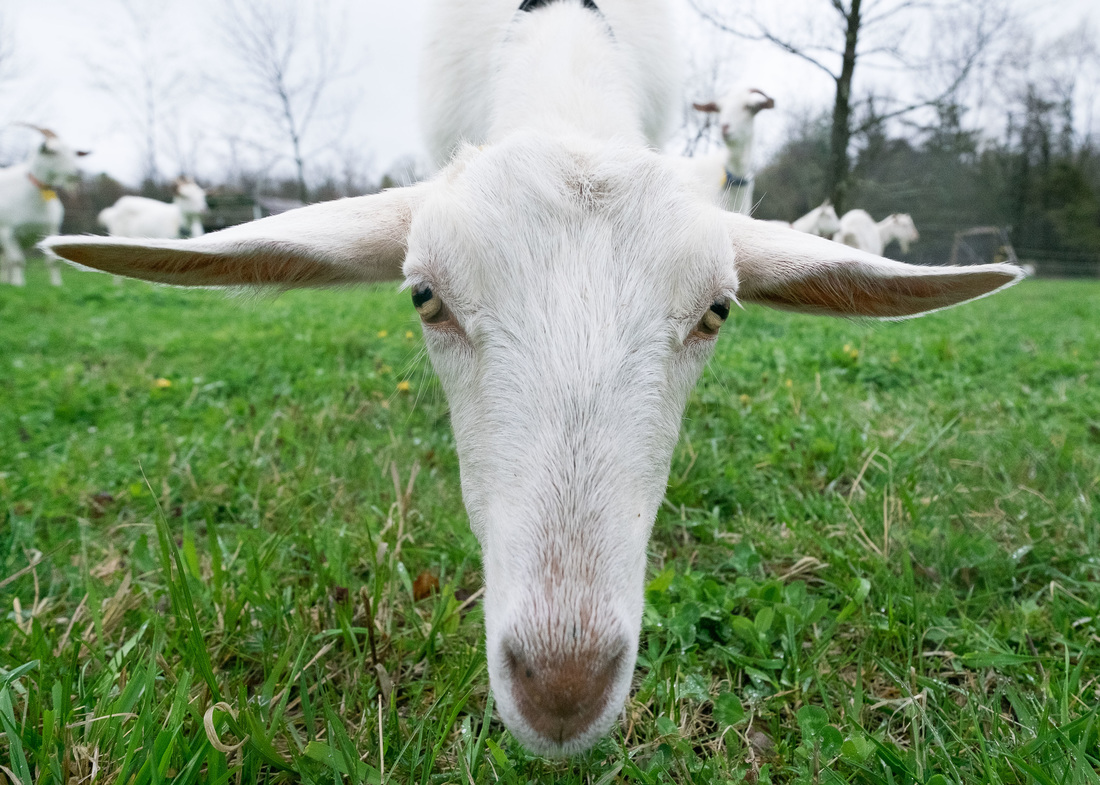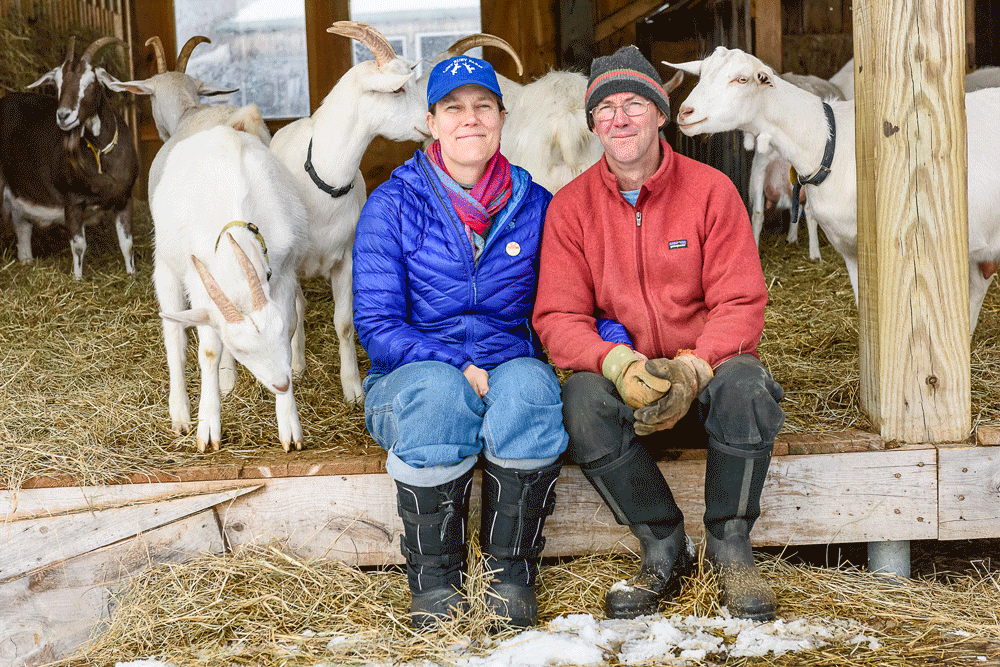Adair Mali and Antonio Guindon get so many questions about the name of their farm, Lost Ruby Farm, that they’ve created a page on their website to address them. The name evokes folk tales, quixotic treasure hunts, and once-upon-a-time currencies. Wanting to raise their children in a small town, Adair and Antonio had moved to Norfolk, CT, where Adair had spent happy summers and weekends as a child. They bought an old farmhouse, and soon learned the lore about the house: the children of past residents had been gifted a large ruby by a globetrotting family friend. In a squabble over who was allowed to hold such a precious object, the ruby slipped between six small hands and fell through a crack in the old wooden floorboards. Those antique floorboards have remained untouched to this day, “so the ruby is presumably still there,” Adair says.
Adair and Antonio adopted the name for their small farm because they felt that it had a broader significance. As she says, “We like the idea that there’s something of value that has been lost with the decline of small farms.” Lost Ruby Farm is certainly invaluable for their local community. They are a micro goat dairy and creamery specializing in crafting small-scale, distinctive handmade cheeses inspired by French recipes. They also raise chickens for egg production, pigs both for their whey consumption (leftover from the cheesemaking process) and butchering, and a limited number of turkeys for Thanksgiving. Beyond their own farm, Adair and Antonio have been advocates of local food. They are champions of their farmers market, which builds the local economy and makes healthy food more accessible to the community. Having seen local farmers markets fail in the past, Adair penned an op-ed in the local paper this summer to urge locals to attend.
Despite meeting and building a house together in Costa Rica, Antonio’s birthplace, they decided to settle permanently in Norfolk, a rural town of two thousand people, just a few years before their twins were born. Adair has had family living in the area for about a century. “This was an appealing place for us to raise kids,” Adair says, “And our kids appreciate what they got from growing up here.”
When they settled in Norfolk, they realized that something was missing: high quality, local food. Almost two decades after their move, a 2015 report found that 16% of Litchfield County (30,056 people) is “without ready access to fresh food.”[1] In a rural area that means having to travel over ten miles to find a grocery store, often with no option of using public transit.[2] Food deserts are common in rural communities as mega stores have pushed out neighborhood grocers. “All the small towns around here are struggling,” Adair says. In Litchfield county, the most sparsely populated county in Connecticut, there wasn’t a farmer’s market for the first five years that Adair and Antonio lived there.
Having grown up on a dairy farm in Monteverde, Costa Rica, Antonio is accustomed to rural life. “But I was pretty determined to get off the farm as fast as I could,” he recalls. He never considered becoming a farmer, instead pursuing a career in woodworking, but that changed once he starting raising kids. Antonio was used to eating fresh, homegrown food. “I realized if you really want good food for your family, you pretty much have to grow it yourself,” he says. And so they did.
From the time they moved to Norfolk, Adair and Antonio supplied themselves with fresh produce from their backyard garden. By the time their children had started grade school, they began accumulating chickens. Their abundance of eggs was shared among their friends and neighbors, and they sometimes bartered for items they couldn’t produce themselves. The first goats were purchased a few years after that, and then they began to experiment with cheesemaking.
When Adair and Antonio started Lost Ruby Farm they came up with a list of values and goals that would guide them. They revisit them annually to keep the focus on what matters and to identify and address new goals, and to help them re-prioritize as they succeed in reaching our already stated ones. This focus helps them think about the farm and their family holistically, and was informed by a class that Adair took with one of Farm Aid’s partners, HMI (Holistic Management International). Some of the values include: raising each thing (plants, animals, children) in an ecologically sustainable way; improving the ecological balance of their land by using the animals to condition and fertilize the soil; prioritizing the health (physical and mental) of all the farm inhabitants; welcoming visitors to the farm; providing opportunities for education and participation; and growing only to a level that both their family and the land can sustain.
Looking back, Adair and Antonio realized that Lost Ruby has been around for longer than they’ve officially been a business. “We didn’t have the name of the farm and we weren’t incorporated, but we were farmers,” Adair says. “Once you let caring for animals and providing food for someone take over your life, which is what happened to us, then you’re a farmer whether you’re official or not.”
Bartering, farming, and, as Antonio says, “shunning automation”: these things might make it seem that Adair and Antonio are committed to an old way of living. They look to the aspects of life that have been lost in the modern world. Though they have a beautiful website, neither are particularly interested in growing their social media presence. Lost Ruby Farm sweatshirts display their unofficial motto: Proud to be small, slow, and inefficient.
“Everything we do is slow. We’re all about attention to detail,” says Adair, who participated in CT NOFA’s (Northeast Organic Farming Association) Beginning Women Farmers Program for two years. Starting out, they wondered if their model was sustainable, if they would have to increase their capacity. “I really hate the thought of having a huge farm with lots of employees and equipment,” Antonio says. “We’re never going to be bigger than what we are right now.”
They milk only ten goats, though the population increases briefly when the kids are born in the spring. They seem to have found the right number for their farm, giving them the ability to check in with each goat twice a day, if not more. In a time when animal husbandry is becoming more automated, Adair and Antonio are excited about how intimately they know their herd. “There are goats that I really don’t like,” Adair muses, “but I know who they are and what they like, what their preferences are.”
Lost Ruby Farm sweatshirts display their unofficial motto: Proud to be small, slow, and inefficient.
Selling on a smaller scale has similar advantages. Lost Ruby Farm produces all sorts of unique goat cheeses, from a creamy sweet chocolate chevre, to the hard and peppery Black Pearl. Their delicious varieties have gain significant popularity in both the summer and winter local markets. Customers often seek out their table, excited to hear about new cheeses and variations on old favorites. Regular buyers get to taste the nuanced differences between the batches and talk to the farmer about how those came about.
Despite offers to get their goat cheeses into specialty stores in New York City, Adair and Antonio prefer to sell locally at farmers markets, one restaurant, and a wine shop in Salisbury. “When you’re this small we really need to maximize every sale,” Adair says. Part of what that means to them is using each interaction to educate their patrons about cheese. They give suggestions, discuss differences between gouda and brie, and impart the wisdom that they have gleaned from ten years of cheese making. Adair “For us to just hand over a bunch of cheese to a shop and not have that opportunity to interact with customers, well we really lose something.”
Treating that opportunity like a rare gem is just one way that Adair and Antonio have cultivated something special in Norfolk.
[1]Scharnberg, Julia. “Starved for Attention: Food Insecurity in Northwest Connecticut.” Edited by Sandy Dressel, The Community Foundation of Northwest Connecticut, The Draper Foundation Fund, 2015, www.northwestcf.org/sites/default/files/banners/FOOD%20REPORT.pdf. 23.
[2]Scharnberg, 23.
